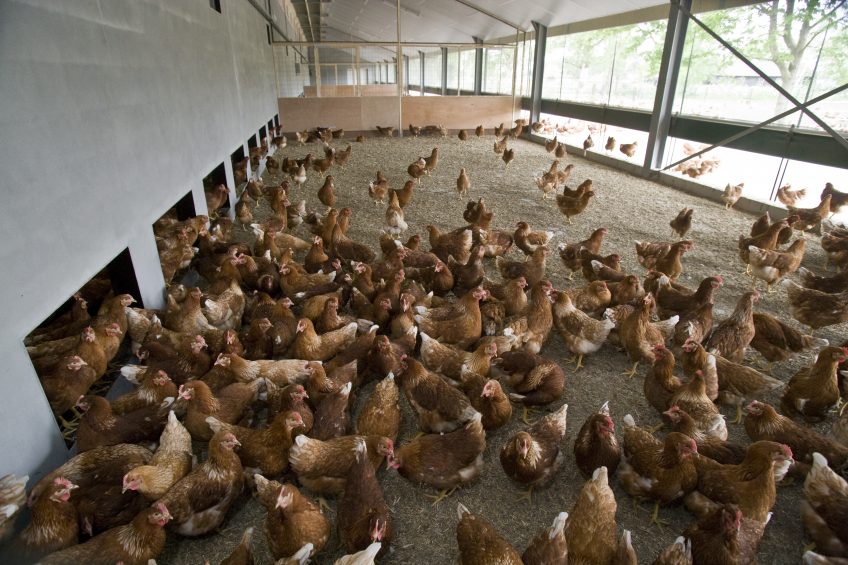Verandas considered as a fix for free-range disease risk

Discussions over the use of verandas to get over the ‘intransigent’ regulations around housing birds during avian influenza outbreaks are gaining traction in both the UK and Europe.
With EU Agriculture Commissioner Phil Hogan adamant that the 12 week derogation for birds housed indoors will not be changed, the British Egg Industry Council has been stepping up its lobbying for verandas.
Use of verandas popular in Europe
Mark Williams, BEIC chief executive and secretary general of the European Egg Producers Association, said the use of veranda-style structures – common in other parts of Europe – would enhance welfare and reduce stocking densities.
Mr Williams said producers could adopt a temporary approach but the structure would have to have a solid roof to prevent gulls from defecating into poultry areas and potentially spreading the disease.
He added that there was support for verandas from the NFU and BFREPA, adding that retailers – who have continued to pay free-range egg prices to producers who have had to keep birds indoors beyond 12 weeks – were looking to industry for a solution. They were broadly supportive of the veranda idea.
“It will reduce stocking density for the hens, providing them with more space and is one step to the birds being out on the range.”
Not all EU countries believe verandas are needed
Talks with other European countries took place at the International Egg Commission’s meeting in Monte Carlo in March with a view to a paper being produced for a European Commission working group meeting on 20 April. EU countries have taken different approaches to the marketing regulations, with some nations simply putting up leaflets in supermarkets outlining the situation. As a result, not all European countries believe verandas are necessary.
“It is up to us as an industry to find a solution,” he said.
Robert Gooch, British Free Range Egg Producers Association (BFREPA) chief executive, said verandas were one option of many but there needed to be a solution at EU level.
Mr Gooch told Poultry World that costs needed to be taken into account but that producers could introduce temporary measures which would not be as expensive as a permanent solution.
He believes that every clause of the EU egg marketing regulations need to be looked into in the light of the housing order issue, adding there were a number of options that could be taken forward. Discussions are due to take place in the middle of May in Brussels.
“One option would be for the commission to extend the 12-week rule. Another option could be to link to the organic standards which look at the lifetime of the bird.
“A third would be to link the order to the chief veterinary officer’s position in each member country,” he added.
When hens should be housed and released
Charles Bourns, chairman of eggs and poultry meat at Copa Cogeca, has written to UK producers about the future of free-range marketing standards.
In the letter, Mr Bourns said he wanted to see the CVO deciding when hens should be housed and when they should be released, adding that his order should null and void the marketing regulations.
“If the hens stay in longer than 12 weeks, this is being ordered because the CVO believes the danger to the national flock is still real. It is not the producer’s decision – the producer is doing it because he has been ordered to do so. So the farm should, and must, maintain its free-range status and not be reduced to barn status and hence a potential loss of premium.”
Mr Bourns said this was the logical solution but added nobody was listening. The commission, he said, were keen on the addition of verandas to poultry houses but he was concerned about cost.
“Verandas will add cost, will take time to be built, especially if planning is required, and will certainly not be in place by next winter.”
However, he added, that it was better to continue talking to the Commission rather than walking away from negotiations and ending up with an imposed solution.













